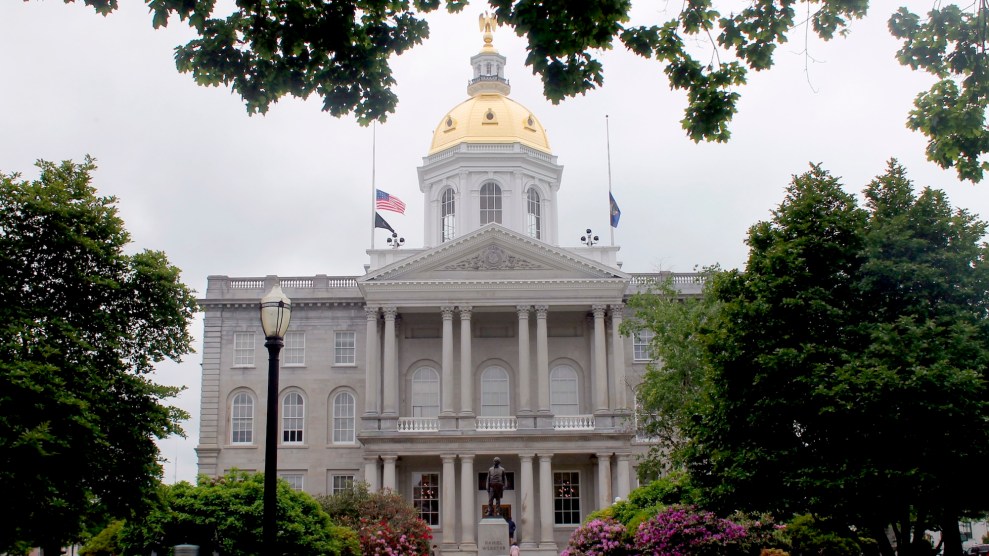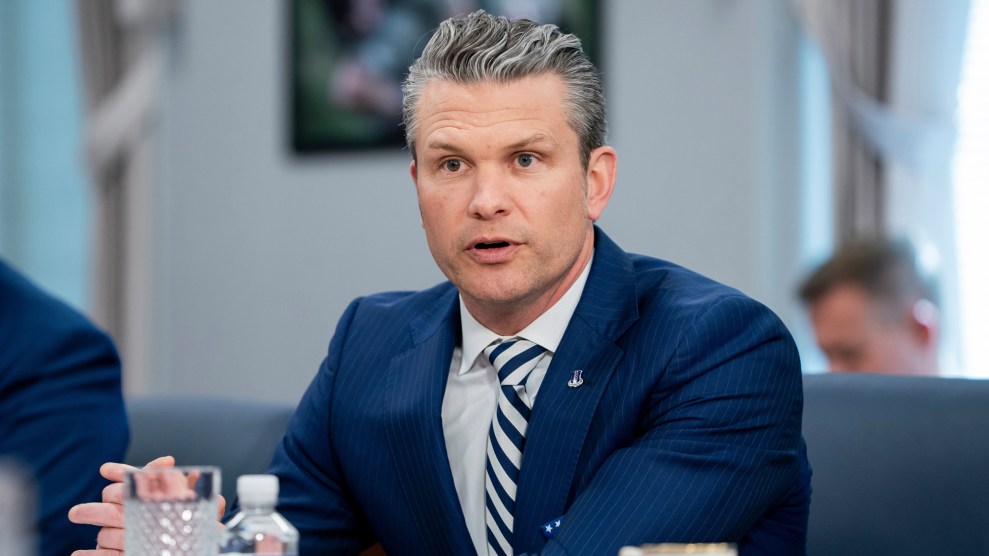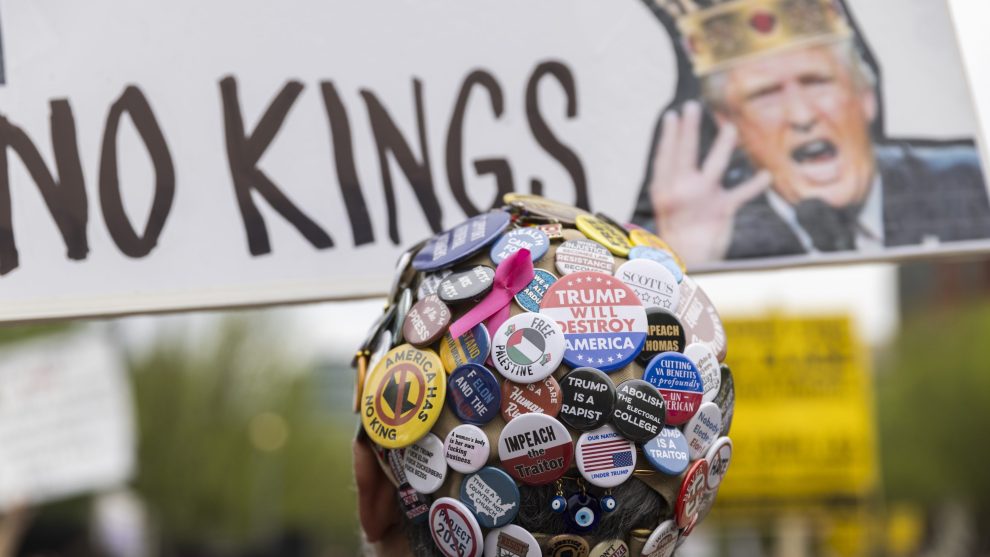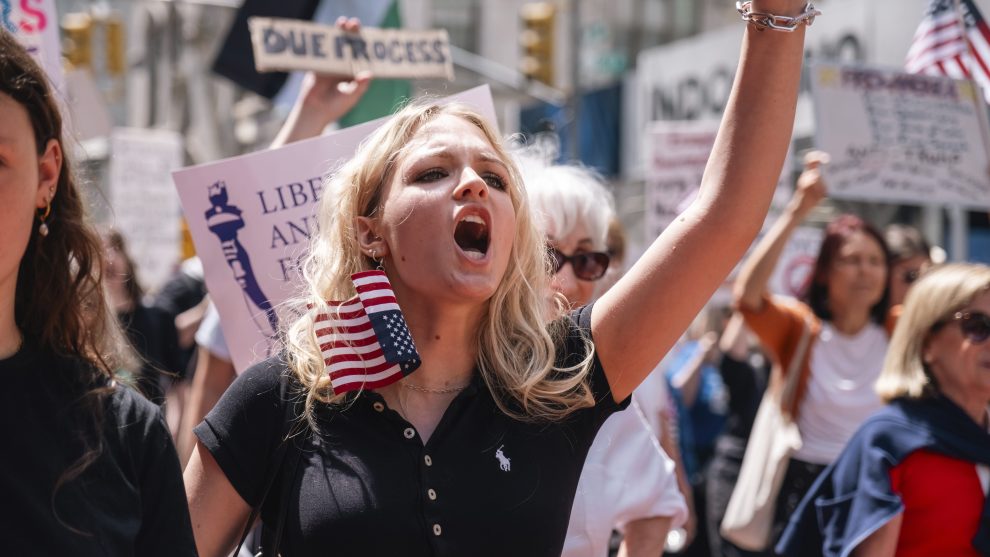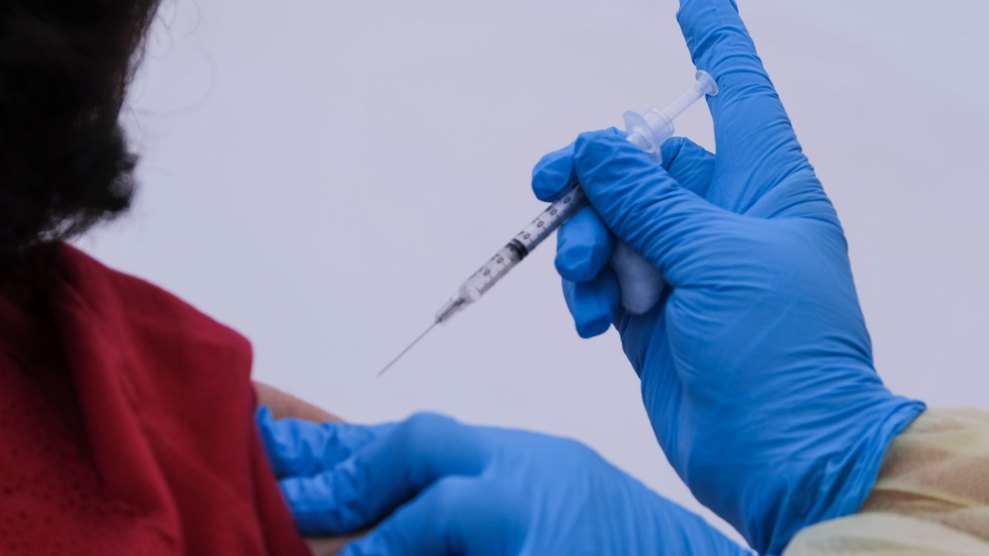
A woman receives a COVID-19 vaccine from a nurse at ''Labor of Love,'' a COVID-19 vaccination event set up in the parking lot of the Los Angeles Federation of Labor office in Los Angeles. Ringo Chiu/AP
As the nation enters a brutal fourth wave of COVID cases and deaths, with infection levels unseen since last winter, National Institute of Health Director Dr. Francis Collins said on ABC’s This Week on Sunday that it may be time for mandatory vaccinations—a remark that will likely inspire backlash from Republicans who have viewed mandates as an infringement on personal rights.
“For me, as a non-political person, as a physician, as a scientist, the compelling case for vaccines for everybody is right there in front of you. Just look at the data,” Collins told host George Stephanopoulos. “And certainly, I celebrate when I see businesses deciding that they’re going to mandate that for their employees…I think we ought to use every public health tool that we can when people are dying.”
MORE: @NIHDirector Dr. Francis Collins: "I understand how that can sometimes set off all kinds of resistance… how did we get here? Why is it that a mandate about vaccine or wearing a mask suddenly becomes a statement about your political party?" https://t.co/mF9V6NaNqi pic.twitter.com/Oce7Jzw1Vj
— This Week (@ThisWeekABC) August 8, 2021
As my colleague Nathalie Baptiste recently noted, the United States currently faces a dilemma in which vaccine uptake, especially in Southern states, has slowed—while hospitalizations, particularly among unvaccinated people, have spiked. Just 50 percent of Americans have been fully vaccinated so far. But many Republican leaders have been wary of forcing their constituents to get the shot. The Huffington Post reported that at least 16 states have barred vaccine mandates to some extent. On NBC’s Meet the Press, Randi Weingarten, president of the American Federation of Teachers, called for vaccine mandates on Sunday, even as other unions have resisted such mandates.
When asked during the ABC interview whether vaccine mandates can make a difference, Collins let out a sigh and laughed. “I understand how that can sometimes set off all kinds of resistance,” Collins said. “Why is it that a mandate about vaccine or wearing a mask suddenly becomes a statement about your political party? We never should have let that happen.”


